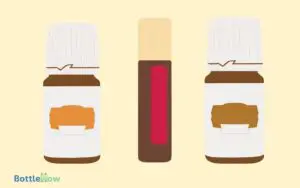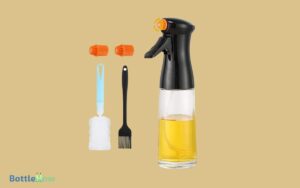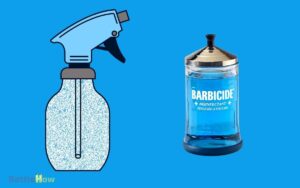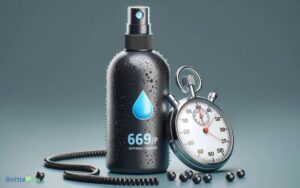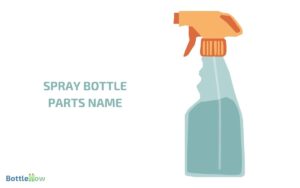Can You Put Alcohol in a Plastic Spray Bottle? Yes!
Yes, you can put alcohol in a plastic spray bottle, but you need to choose the right type of plastic. Make sure the bottle is made of PETE or HDPE, as these materials are resistant to the corrosive nature of alcohol.
It’s crucial to select a bottle that won’t degrade over time, leak chemicals into the alcohol, or deteriorate with repeated use. Check for a recycling symbol that confirms the plastic type.
Store your alcohol away from direct sunlight and make sure the cap is tightly sealed to prevent evaporation and contamination. More information awaits to enhance your understanding of safe storage practices.
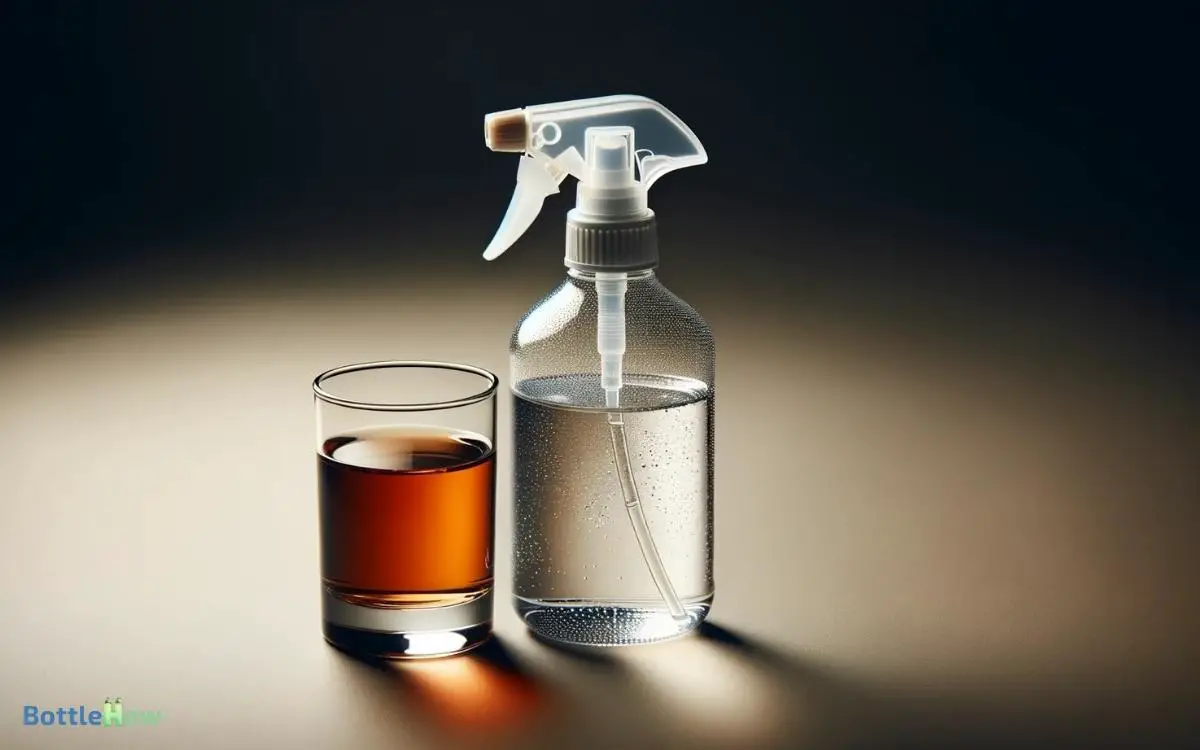
Key Takeaways
Understanding Plastic Compatibility
Before you begin pouring alcohol into any plastic spray bottle, it’s crucial to verify that the plastic type is compatible with alcohol to prevent chemical reactions and degradation.
Some plastics can break down when exposed to strong solvents like alcohol, releasing harmful chemicals or compromising the integrity of the bottle.
You’ll want to look for bottles made from PET (Polyethylene Terephthalate) or HDPE (High-Density Polyethylene), as these materials are generally resistant to the corrosive effects of alcohol.
Ensuring the right material not only protects your health but also extends the lifespan of the spray bottle.
Always check the recycling symbol on the bottom of the bottle for a ‘1’ (PET) or ‘2’ (HDPE) to guarantee safety and efficacy in your service.
Types of Alcohol for Spraying
When selecting alcohol for your spray bottle, it’s important to choose types that are both effective and safe for your intended use.
Isopropyl alcohol (IPA) and ethanol are the most commonly recommended options. Isopropyl alcohol, available in concentrations like 70% or 90%, is excellent for disinfecting and cleaning surfaces.
It’s essential to remember that higher concentrations may evaporate too quickly, reducing the contact time needed to kill germs effectively.
Ethanol, also known as ethyl alcohol, can serve similar purposes. However, make sure it’s denatured or at a suitable percentage for antimicrobial activity, typically around 70%.
Always consider the safety implications and intended application of the alcohol to ensure it aligns with your goals of serving and protecting others.
Selecting the Right Plastic Bottle
After selecting the right type of alcohol, you’ll need to choose a plastic spray bottle that can safely store and dispense it.
Look for bottles specifically designed to handle solvents; these are typically made from PETE or HDPE plastic, as they offer better chemical resistance compared to others.
You’ll want to confirm the bottle isn’t prone to degradation when in contact with alcohol, which can affect its ability to function properly over time.
Check the manufacturer’s recommendations to verify that the plastic is suitable for alcohol use.
Opt for a bottle with a durable spray mechanism, as alcohol can be corrosive to less sturdy components. Confirming the integrity of both bottle and sprayer will help you serve effectively and safely. Additionally, choose a bottle made from high-quality materials to prevent leaks or degradation over time. Storing it properly with a secure cap can also minimize unnecessary exposure to air. If you’re wondering, “will alcohol evaporate in a spray bottle,” the answer depends on how well the bottle is sealed—an airtight container will help retain its potency for longer.
Risks of Using Plastic Bottles
Although plastic bottles offer convenience, you should be mindful of the potential risks associated with using them to store alcohol.
Here are some critical points to take into account:
- Chemical Leaching: Chemicals in plastics can leach into alcohol, especially with extended storage, potentially harming those you care for.
- Degradation Over Time: Plastic can degrade, especially if exposed to heat or sunlight, compromising the safety of the alcohol.
- Odor and Taste Transfer: Plastics can impart unpleasant odors and flavors to alcohol, detracting from its quality.
- Environmental Concerns: Using plastic contributes to environmental pollution, contradicting efforts to care for our planet and its inhabitants.
Being informed helps you make safer choices, showing genuine concern for the well-being of others.
Safety Measures for Alcohol Storage
To guarantee your safety and maintain the quality of your alcohol, it is crucial to adopt specific storage measures.
You must store alcohol in a cool, dry place away from direct sunlight as heat and light can degrade its quality. Also, make sure the cap is tightly sealed to prevent evaporation and contamination.
Here’s a simple table to help you visualize these key points:
| Storage Factor | Importance |
|---|---|
| Temperature Control | Keep cool and avoid heat |
| Light Exposure | Store in dark environments |
| Sealing | Tight to prevent leaks |
Alternative Containers for Alcohol
When considering alternative containers for storing alcohol, it’s important to weigh the benefits and drawbacks of each option.
Glass bottles offer excellent preservation qualities because they don’t react chemically with alcohol, ensuring the flavor remains unaltered.
On the other hand, metal flasks are praised for their durability and portability, although they may sometimes impart a metallic taste to their contents.
Glass Bottle Benefits
Glass bottles offer superior protection against contamination and degradation of alcohol due to their impermeability and inertness.
When you’re aiming to provide the best possible experience for your guests or clients, choosing the right storage can make a significant difference.
Glass, with its classic appeal, not only preserves the quality of the alcohol but also enhances the overall presentation.
- Preservation of Purity: Glass doesn’t interact with alcohol, ensuring the taste remains unaltered.
- Aesthetic Appeal: The clarity and shine of glass bottles convey a sense of quality and sophistication.
- Recyclability: Glass can be recycled multiple times, reducing environmental impact.
- Health Safety: Non-reactive nature keeps harmful chemicals out of your beverages.
Keep these benefits in mind when deciding how to store and serve alcohol.
Metal Flask Durability
Metal flasks, often chosen for their robustness, offer a durable alternative for alcohol storage and transport.
You’ll find that these flasks are typically made from stainless steel, which effectively resists corrosion and doesn’t interact chemically with the alcohol inside. This quality ensures that the flavor of your beverage remains unaltered over time.
However, it’s important to bear in mind that not all metal flasks are created equal. Before you decide to use one, make sure it’s specifically designed for storing alcoholic beverages.
Some metals can leach harmful substances if they’re not adequately treated for alcohol compatibility.
Always prioritize safety and confirm that the flask meets food-grade standards, especially when you’re responsible for serving others. This careful selection will protect both the integrity of the drink and the health of its consumers.
Conclusion
In wrapping up, think of storing alcohol in plastic bottles as a delicate dance. Just as a dancer must choose the right shoes to avoid a misstep, you must select the right plastic to prevent chemical reactions.
Remember, not all plastics are created equal; standard PET bottles may degrade, leading to potential leaks and contamination.
For peace of mind, consider glass or metal containers, ensuring your alcohol storage is as safe and pure as a well-rehearsed ballet performance.

